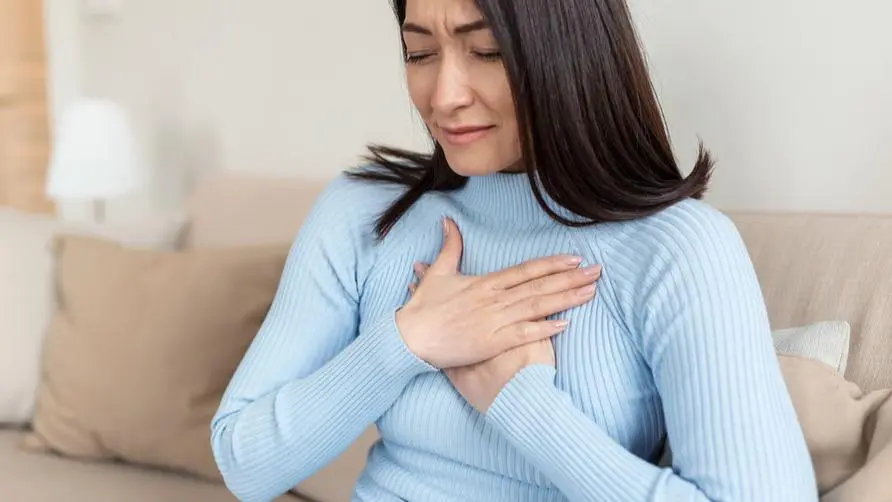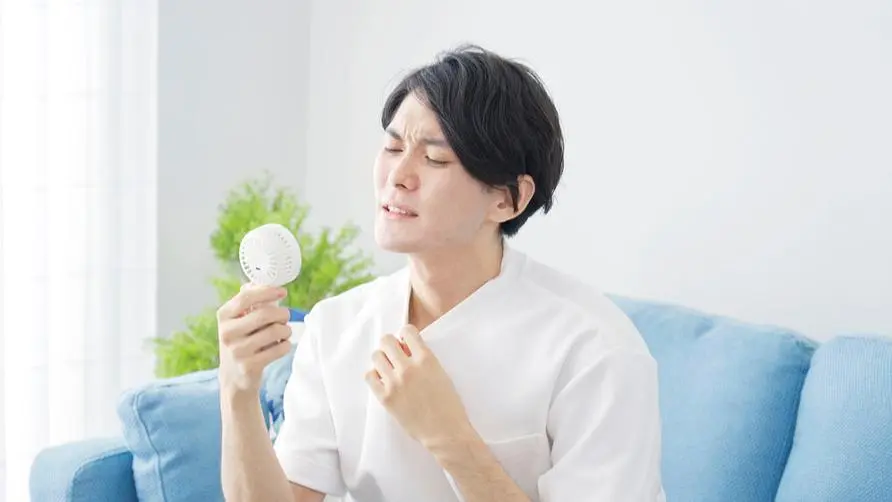Did you almost die if you took a bath in the cold weather? Is eating pot equal to "abusing the heart"? Doctors urge "three major preparations" before winter

As the weather gets cooler, many people gather at major restaurants to celebrate at the end of the year, and hot pot is a favorite of many Taiwanese people. Dr. Du Zongming, Director of the Cardiac Catheterization Laboratory and Chief Physician of the Department of Cardiovascular Medicine at Yatong Memorial Hospital, pointed out in an interview that eating hot pot food is really a “big mine” for patients with cardiovascular disease. How can patients enjoy delicious food and Maintaining a healthy balance will be a very important issue.
Is eating hotpot in cold weather really bad for your heart? Doctors reveal the most deadly “two major situations”
Dr. Du Zongming said that there are two main cardiovascular impacts of eating pot at year-end parties: one is the temperature difference between inside and outside. When people warm up by eating hot pot indoors and then go outdoors to a cold environment, their blood vessels will contract violently, causing increased blood flow resistance, soaring blood pressure, and increasing the load on the heart. At this time, they are more likely to be exposed to the risk of cardiovascular diseases such as myocardial infarction, aortic dissection, and stroke. among.
The second is that hot pot ingredients and hot pot soup bases are high in sodium or high in purine. In addition, people often use seasonings that are too salty for hot pot shabu-shabu. Without proper replenishment of water, the blood becomes relatively sticky; ice cream, containing Sugary drinks can also aggravate the body’s dehydration, which can more easily cause blood vessel obstruction and blood clots, thereby increasing the risk of acute myocardial infarction.
Dr. Du Zongming said that there were patients with cardiovascular disease who did not take their medicines on time and frequently consumed high-sodium foods such as soup base and hot pot ingredients at hot pot restaurants, which resulted in poor symptom control and a sudden increase in blood pressure. In the end, they were rushed to the hospital due to difficulty in breathing. , calling on relevant ethnic groups not to ignore the harm caused by sudden heart disease.
Are young people at low risk for cardiovascular disease? Medical Refutation: College students may also have high blood pressure and high blood sugar!
As for whether young people should worry about cardiovascular-related risks? Dr. Du Zongming explained that clinically, it is indeed seen that hypertension and cardiovascular diseases are getting younger year by year. There are even college students in their 20s whose blood pressure soars above 180 during health check-ups. In addition, it is common for young people to have excessively high cholesterol and blood sugar levels. The problem of high cholesterol and blood sugar is not necessarily exclusive to the elderly.
“If a young person has the above risk factors without knowing it, and encounters a cold weather with friends, or encounters a situation where the temperature difference between indoor and outdoor is too large, severe blood vessel contraction will still cause problems!” Dr. Du Zongming said, The turn of autumn and winter is a prime period for cardiovascular diseases. If coupled with bad habits such as smoking and alcohol abuse, or long-term exposure to hazards such as PM2.5, young people must pay special attention to excessive inflammation in the body, which can cause hardening of the arteries. .
Do you have eyebrows when you soak in hot springs in winter? “1 action” almost cost him his life
Speaking of temperature differences, people’s preference for “bathing” in winter is another serious risk factor? Dr. Du Zongming said that generally speaking, the temperature of hot springs is around 40 degrees, which is only slightly higher than body temperature. If combined with moderate rest and hydration, the impact on cardiovascular disease should be minimal. However, if people encounter drastic temperature changes while bathing in hot springs, they may still be at risk of cardiovascular disease.
Dr. Du Zongming pointed out that he had previously treated a person who soaked in a hot pool for several hours after exercising and then transferred to a cold pool to continue soaking. As a result, he suffered severe chest pain after soaking. He was sent to the hospital for diagnosis and was found to have a severe coronary artery rupture and was diagnosed as “acute myocardial infarction.” “The patient was very lucky. The gym was near the hospital and he improved after undergoing cardiac catheterization surgery.” . If you delay seeking medical treatment, it may be life-threatening!"
Dr. Du Zongming suggested that people should pay attention to several points when taking a bath: first, do not alternate between hot and cold water frequently; second, if you have chronic diseases such as high blood pressure, or are older, it is recommended not to take too many hot baths. For a long time, get up and take a rest every 15 minutes. Furthermore, it is easy to lose water when soaking in the bath. Insufficient body water can easily cause blood thickness to increase, which may cause the risk of blood clots. Therefore, hydration is very important.
Wear it when it’s cold and take it off when you go indoors! “Onion Style Dressing” Helps Protect the Heart and Keep Warmth
Dr. Du Zongming said that at the turn of autumn and winter, especially those with cardiovascular disease, when moving from a hotter indoor space to outdoors, blood vessels are prone to constriction, causing risks; and when walking from outdoors to indoors, they may wear too much and get injured. It can cause discomfort and sweating, which can also cause water loss and thickening of the blood. Therefore, it is recommended that people adopt the “onion-style dressing method”. Wear it when it’s cold and take it off when you go indoors. This can keep your body temperature constant with the outdoor temperature.
In addition, when eating hot pot, hot pot ingredients or hot pot soup base are relatively unhealthy for the cardiovascular system, so special attention should be paid to the intake. People can choose lighter soup bases such as kombu and tomato pot; hot pot ingredients can be replaced with vegetables and fruits. Patients with chronic diseases are also reminded to take medication regularly, otherwise their symptoms may be aggravated.
Finally, Dr. Du Zongming reminded the public that during the year-end gatherings, if you have any signs of cardiovascular disease, such as neck tightness, numbness and weakness in your hands, headache and dizziness, chest pain, shortness of breath or hyperpnea, or even worse, Cold sweats and other symptoms may be symptoms of cardiovascular disease. At this time, you should seek medical treatment as soon as possible and do not delay the golden treatment period, otherwise your life may be affected.
Further reading:





